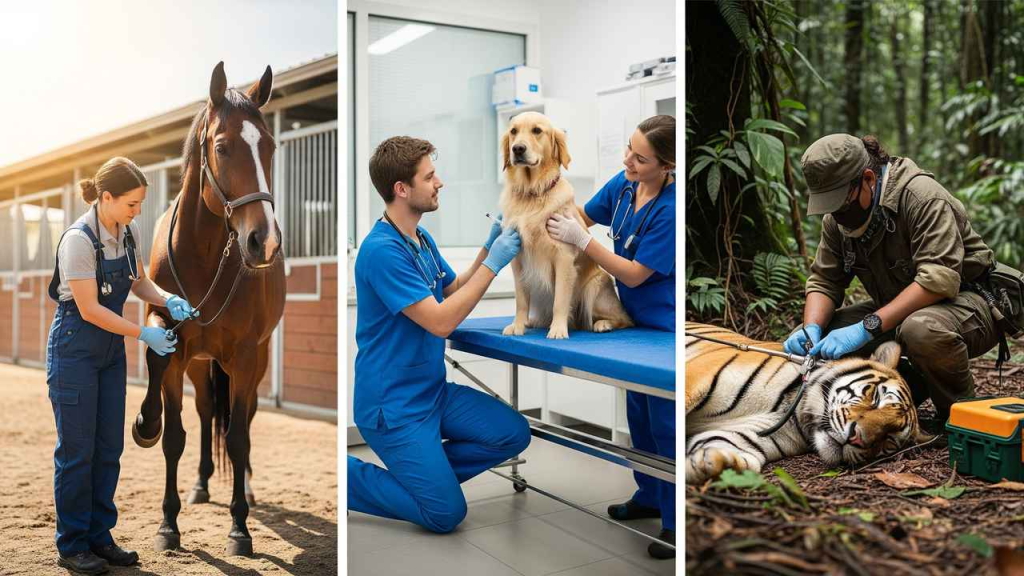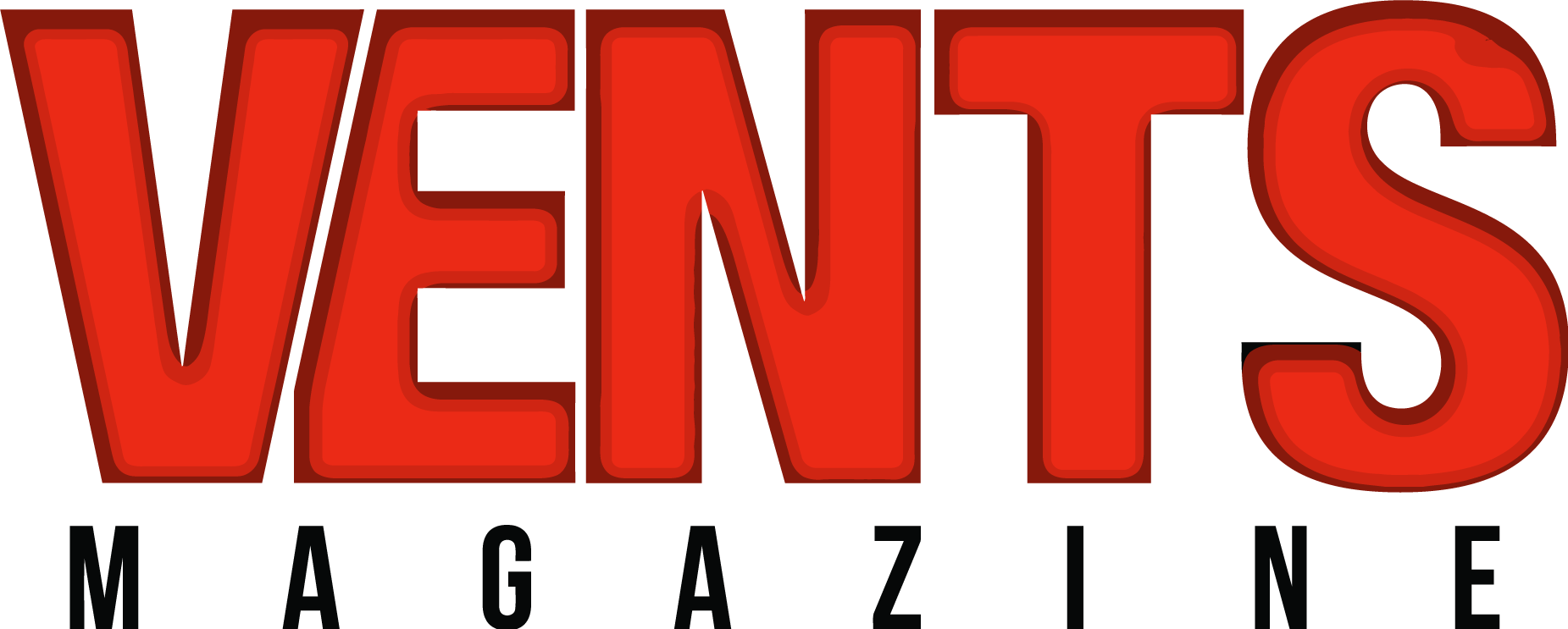
Veterinarians are more than pet doctors—they are scientists, caregivers, and advocates for animal welfare and public health. While many people picture vets working in a small-animal clinic treating cats and dogs, veterinary medicine is much broader. From wildlife conservation to advanced surgery, there are dozens of rewarding paths within this profession.
Whether you’re a recent veterinary graduate exploring your options or an experienced DVM considering a career change, understanding the different types of veterinarian jobs can help you find the role that best matches your skills, passions, and lifestyle.
Why Explore Different Veterinary Careers?
Veterinary medicine has expanded far beyond the traditional clinic. Today’s veterinarians contribute to research, public health, animal welfare, and even the food industry. Some specialize in advanced clinical care, while others work behind the scenes in labs, universities, or government agencies.
Exploring the diversity of veterinary career paths allows you to:
- Discover areas that fit your professional interests.
- Balance personal lifestyle with career goals.
- Understand the additional training or certifications needed for specialization.
1. Anesthesia and Analgesia
Veterinary anesthesiologists focus on safe sedation and pain management for all species.
Work Environments:
- Specialty and referral hospitals
- University teaching hospitals
- Research labs
Responsibilities:
- Designing anesthesia plans tailored to species and procedures
- Monitoring patients intraoperatively (ECG, blood pressure, capnography)
- Managing postoperative pain with multimodal analgesia
- Training staff on safe anesthesia protocols
Skills Needed:
- Deep knowledge of anesthetic drugs and pharmacology
- Quick thinking during emergencies like hypotension or arrhythmias
- Proficiency with advanced monitoring equipment
Training Path: DVM → 1-year internship → 3-year residency → Board certification
2. Animal Welfare
Animal welfare veterinarians ensure humane treatment across industries.
Work Environments:
- Shelters and rescue organizations
- Government agencies (e.g., USDA)
- Nonprofit groups (ASPCA, Humane Society)
Responsibilities:
- Inspecting facilities for welfare compliance
- Investigating neglect or cruelty cases
- Creating enrichment and housing standards
- Educating caregivers and policymakers
Skills Needed:
- Knowledge of species-specific needs
- Strong advocacy and communication skills
- Report writing and investigative ability
Training Path: DVM → Shelter/welfare internship (optional) → Certifications such as AWSEL
3. Behavior
Veterinary behaviorists diagnose and manage behavior disorders with training and medication.
Work Environments:
- Private behavior practices
- University hospitals
- Shelter programs
Responsibilities:
- Conducting consultations and behavioral assessments
- Designing modification plans (counter-conditioning, desensitization)
- Prescribing psychotropic medications
- Working alongside trainers and technicians
Skills Needed:
- Strong grasp of ethology and learning theory
- Patience and excellent communication with clients
- Observation and problem-solving
Training Path: DVM → Internship → 2-3 year residency → ACVB board exams
4. Dentistry
Veterinary dentists handle everything from cleaning teeth to advanced oral surgery.
Work Environments:
- Specialty dental practices
- University hospitals
- General practices with a dental focus
Responsibilities:
- Dental exams, charting, and prophylaxis
- Extractions, root canals, crowns
- Orthodontics for malocclusion
Skills Needed:
- Fine motor skills for delicate procedures
- Proficiency with dental imaging
- Pain management coordination
Training Path: DVM → Internship → 2-3 year residency → AVDC certification
5. Dermatology
Veterinary dermatologists specialize in skin, ear, and nail health.
Work Environments:
- Dermatology clinics
- Universities
- Specialty hospitals
Responsibilities:
- Allergy testing and immunotherapy
- Skin scrapings, biopsies, cytology
- Treating chronic ear and skin conditions
- Performing dermatologic surgeries
Skills Needed:
- Diagnostic interpretation skills
- Client education for long-term care
- Surgical precision
Training Path: DVM → Internship → 2-3 year residency → ACVD certification
6. Emergency and Critical Care
ECC veterinarians save lives in urgent situations.
Work Environments:
- 24/7 emergency hospitals
- University ICUs
- Referral centers
Responsibilities:
- Triage and stabilization
- Emergency surgery (e.g., splenectomy)
- Intensive care (ventilators, dialysis)
- Coordinating with specialists
Skills Needed:
- Fast decision-making under pressure
- Mastery of life-support techniques
- Leadership in high-stress teams
Training Path: DVM → Internship → 2-3 year residency → ACVECC certification
7. Internal Medicine
These specialists manage complex, chronic conditions across organ systems.
Work Environments:
- Referral hospitals
- Specialty clinics
Responsibilities:
- Performing advanced diagnostics (endoscopy, ultrasound, biopsies)
- Managing diabetes, kidney disease, heart conditions
- Designing oncology and chemotherapy protocols
Skills Needed:
- Strong case-management ability
- Expertise in pathophysiology
- Proficiency with imaging and diagnostics
Training Path: DVM → Internship → 3-4 year residency → ACVIM certification
8. Laboratory Animal Medicine
Lab animal veterinarians oversee the care of animals used in research.
Work Environments:
- Academic and corporate research labs
- Pharmaceutical companies
- Contract research organizations
Responsibilities:
- Designing care protocols for research animals
- Surgical support during studies
- Ensuring regulatory compliance (IACUC, GLP)
- Monitoring colony health
Skills Needed:
- Husbandry and physiology knowledge
- Strong regulatory expertise
- Organizational skills
Training Path: DVM → 2-3 year residency → ACLAM certification
9. Nutrition
Veterinary nutritionists design diets to improve health and treat disease.
Work Environments:
- Pet food companies
- Specialty hospitals
- Universities
Responsibilities:
- Developing balanced rations and therapeutic diets
- Running feeding trials
- Managing nutrition for obesity, allergies, kidney disease
- Advising on supplements
Skills Needed:
- Expertise in nutrient metabolism
- Research and data analysis
- Proficiency with formulation software
Training Path: DVM → Residency or MS/PhD → ACVN certification
10. Ophthalmology
Veterinary ophthalmologists diagnose and treat eye disease.
Work Environments:
- Eye referral clinics
- Universities
Responsibilities:
- Detailed eye exams and imaging
- Medical management of glaucoma, uveitis, corneal ulcers
- Surgical procedures: cataracts, eyelid reconstruction, enucleation
Skills Needed:
- Precision in microsurgery
- Ocular pharmacology knowledge
- Interpretation of imaging and electrophysiology
Training Path: DVM → Internship → 2-3 year residency → ACVO certification
11. Specialty and Referral Medicine
Many vets pursue advanced specialties beyond general practice, including:
| Specialty | Core Focus |
| Surgery | Orthopedics, soft‑tissue reconstruction |
| Internal Medicine | Cardiology, oncology, neurology, gastroenterology |
| Emergency & Critical Care | Trauma triage, ICU management |
| Anesthesiology | Advanced anesthesia protocols, pain management |
| Radiology | CT, MRI, ultrasound, interventional procedures |
| Dermatology | Skin biopsies, allergy testing, surgical dermatology |
| Ophthalmology | Cataract surgery, glaucoma management |
| Dentistry | Endodontics, orthodontics, complex extractions |
| Pathology | Histopathology, necropsy, diagnostic reporting |
| Preventive Medicine | Epidemiology, zoonotic disease control |
Final Thoughts
Veterinary medicine is more diverse than most people realize. Whether your interest lies in surgery, public health, animal behavior, or research, there’s a role where you can make a meaningful impact.
For students just starting out or seasoned DVMs exploring new directions, the first step is learning about the possibilities. The next is finding the right mentors, training, and opportunities to make your career vision a reality.
At VetRep Finder, we help veterinary professionals—including those pursuing careers in veterinary sales—connect with resources and opportunities that support success at every stage of their journey.
FAQs
1. What training is required to become a veterinary specialist?
Most specialists complete a DVM degree, a 1-year rotating internship, and a 2-4 year residency, followed by board certification in their chosen field.
2. How do I choose the right veterinary specialty?
Consider your interests (clinical care, research, diagnostics), desired work environment, lifestyle goals, and willingness to commit to further training. Shadowing specialists and finding mentors can guide your decision.
3. Are veterinary specialists in demand?
Yes. With the growing complexity of veterinary medicine, specialists—particularly in emergency care, dermatology, internal medicine, and anesthesiology—are highly sought after in both private practice and referral hospitals.
